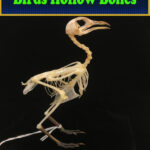How Long Can a Bearded Dragon Go Without Eating?
Bearded dragons, also known as “beardies,” are popular reptile pets known for their unique appearance and docile nature. As responsible owners, it’s essential to understand their dietary needs to ensure their health and well-being. One common question that arises is, “How long can a bearded dragon go without eating?”
In this thorough guide, we’ll examine the variables affecting a bearded dragon’s feeding habits and respond to frequent questions concerning their appetite. So, let’s delve into the fascinating world of bearded dragons and discover the answers you seek.
How Long Can a Bearded Dragon Go Without Eating: Exploring the Basics
Bearded dragons are omnivorous reptiles that consume a diverse diet consisting of insects, vegetables, fruits, and occasionally, small vertebrates. Their natural habitat in Australia comprises arid regions, which means they have adapted to withstand periods of limited food availability.
However, this doesn’t mean they can survive indefinitely without eating. So, let’s answer the question, “How long can a bearded dragon go without eating?”
Understanding the Bearded Dragon’s Feeding Behavior
To comprehend how long a bearded dragon can go without eating, it’s crucial to understand its feeding behavior. Beardies are opportunistic feeders, meaning they eat whenever food is available.
In captivity, they usually exhibit predictable feeding patterns, consuming small meals multiple times a day. However, their appetite can fluctuate due to various factors, including health, environmental conditions, and stress levels.

The Factors Affecting a Bearded Dragon’s Appetite
Several factors influence a bearded dragon’s appetite, which ultimately determines how long it can go without eating. Let’s explore these factors in detail:
- Age: Bearded dragons have different dietary requirements at various stages of their lives. Juveniles require more frequent feeding due to their rapid growth and higher energy demands. As they mature, their appetite tends to decrease, resulting in longer periods between meals.
- Health and Well-being: Illnesses, infections, or parasites can significantly impact a bearded dragon’s appetite. If your dragon shows signs of a decreased appetite for an extended period, it’s crucial to consult a veterinarian for a thorough examination.
How Long Can a Bearded Dragon Go Without Eating? - Environmental Conditions: The temperature, lighting, and overall environment in their enclosure can influence a bearded dragon’s appetite. A properly regulated habitat with appropriate heat and lighting is essential for promoting their appetite and overall health.
- Brumation: Bearded dragons experience a natural phenomenon called brumation, which is similar to hibernation in mammals. During brumation, their metabolic rate slows down, leading to reduced activity and appetite. This period can last several weeks or even months, depending on the individual and environmental conditions.
How Long Can a Bearded Dragon Go Without Eating: The Answer
Now that we’ve explored the various factors affecting a bearded dragon’s appetite, let’s address the main question: How long can a bearded dragon go without eating?
The specific duration can vary depending on age, health, and environmental conditions, but generally, a healthy bearded dragon can survive without food for several weeks.
Juvenile Bearded Dragons
Juvenile bearded dragons, due to their rapid growth and higher metabolic rates, have a higher demand for food. As a result, they can typically go without eating for around 5 to 7 days.
However, it’s important not to let them go for extended periods without food, as it can lead to malnourishment and other health issues.
Adult Bearded Dragons
Adult bearded dragons have slower metabolic rates compared to juveniles. They are more capable of storing fat reserves and sustaining themselves for more extended periods without food.
In general, a healthy adult bearded dragon can go without eating for approximately 10 to 14 days. However, this is a rough estimate, and individual dragons may vary in their ability to tolerate fasting.
Brumation Period
During brumation, which typically occurs in the winter months, bearded dragons may go without eating for an extended period. While the duration can vary, it’s not uncommon for bearded dragons to fast for several weeks or even a few months during this time.
It’s important to monitor their weight and overall condition carefully during brumation to ensure they remain healthy.
FAQs About a Bearded Dragon’s Feeding Habits
1. Can a bearded dragon starve itself to death?
No, bearded dragons are resilient creatures and have evolved to withstand periods of food scarcity. However, prolonged fasting can lead to malnourishment and weaken their immune system, making them susceptible to illnesses.
2. How can I encourage my bearded dragon to eat?
If your bearded dragon is displaying a decreased appetite, there are several things you can try. Ensure their enclosure is set up correctly with appropriate temperatures and lighting.
Offer a variety of food options, including live insects, vegetables, and fruits. Sometimes, hand-feeding or presenting food in different ways can stimulate their appetite.
3. What are the signs of an unhealthy bearded dragon?
Signs of an unhealthy bearded dragon include a loss of appetite, weight loss, lethargy, changes in stool consistency, abnormal shedding, respiratory issues, and visible signs of illness or injury. If you notice any of these signs, it’s crucial to seek veterinary attention promptly.
4. Can a bearded dragon survive solely on vegetables?
While vegetables are an essential part of a bearded dragon’s diet, they cannot survive solely on a vegetarian diet. Bearded dragons require a balance of vegetables, fruits, and insects to meet their nutritional needs adequately.
5. How often should I feed my bearded dragon?
Juvenile bearded dragons should be fed multiple small meals a day, while adults can be fed once or twice a day. It’s important to provide fresh food and remove any uneaten portions to maintain cleanliness.
6. Should I be concerned if my bearded dragon refuses to eat during brumation?
During brumation, bearded dragons naturally reduce their activity and appetite. While it’s normal for them to eat less or not eat at all during this period, it’s crucial to monitor their weight and overall condition. If you have any concerns, consult a reptile veterinarian for guidance.
Conclusion
Understanding a bearded dragon’s feeding habits is essential for their overall health and well-being. While they can survive without food for extended periods, it’s crucial to ensure they receive a balanced diet and regular meals to prevent malnourishment and other health issues.
If you have any concerns about your bearded dragon’s appetite or general health, consult a reptile veterinarian for guidance and expert advice. By providing them with the proper care, you can enjoy the companionship of these captivating reptiles for many years to come.







